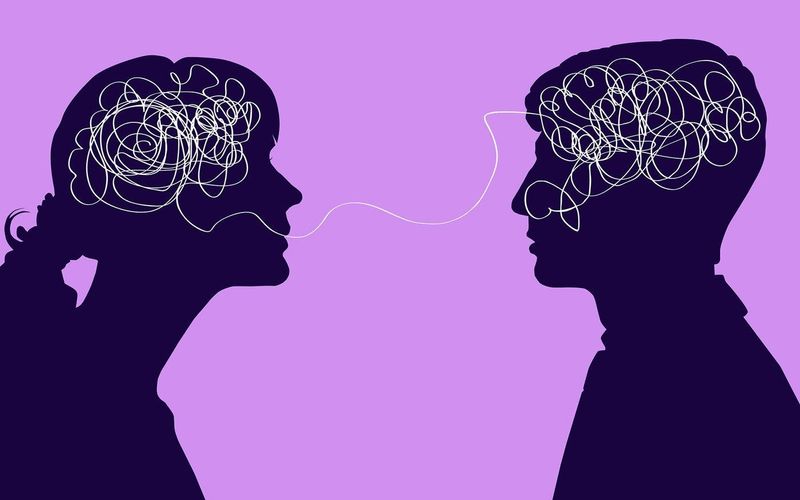18 Red Flag Behaviors Of Emotionally Immature Partners

Navigating relationships can be challenging, especially when faced with partners who exhibit emotionally immature behaviors. These red flags often signal deeper issues that can hinder emotional connection and growth.
Recognizing these behaviors is crucial for maintaining a healthy and fulfilling relationship. In this post, we outline 18 specific red flag behaviors that are common among emotionally immature partners.
From deflecting blame to treating emotional needs as ‘drama,’ each behavior quietly undermines trust and intimacy. Understanding these signs can empower you to set boundaries and seek meaningful change.
1. Deflecting Blame for Everything

In relationships, accountability forms the cornerstone of trust. An emotionally immature partner often shifts blame onto others, evading responsibility for their actions. This deflection not only damages trust but also creates a toxic environment where growth is stifled.
By consistently pointing fingers, they may protect their ego at the expense of the relationship’s health.This behavior creates a cycle of unresolved issues, leaving partners feeling unsupported and alone. True accountability involves owning one’s mistakes and working collaboratively towards solutions.
Partners who blame deflect, rarely contribute to positive change, making it difficult to build a lasting connection. This red flag should not be ignored, as it symbolizes deeper relational issues.
2. Avoiding Hard Conversations Altogether

Silence can be golden, but not when it avoids necessary conversations. Emotionally immature partners often sidestep difficult discussions, fearing conflict or vulnerability. This avoidance leads to unresolved tension and misunderstandings, slowly eroding the relationship’s foundation.
By shying away from hard topics, they deny themselves and their partners the chance for growth and deeper understanding. Communication is the lifeline of any relationship, allowing for clarity and connection. When partners refuse to engage in meaningful dialogue, emotions fester, and resentment builds.
This behavior, while seemingly benign, signals a lack of emotional depth, hindering genuine intimacy and growth within the relationship.
3. Expecting Others to Read Their Mind

Expecting partners to read minds is a common pitfall of emotional immaturity. This behavior creates unrealistic expectations and unnecessary pressure within a relationship. Partners who fail to communicate openly often feel misunderstood, leading to frustration on both sides.
This silent expectation obstructs genuine connection and can make partners feel they are constantly falling short. Clear communication is essential for a relationship to thrive, yet emotionally immature partners may evade this responsibility.
By expecting others to intuit their needs, they forego meaningful dialogue, which is vital for understanding and empathy. This behavior not only isolates but also perpetuates a cycle of dissatisfaction and resentment.
4. Using Silent Treatment as Punishment

Silent treatment is a manipulative tool often wielded by emotionally immature partners. It serves as a form of punishment, withholding communication to control or express dissatisfaction. This tactic can be emotionally damaging, creating a sense of isolation and insecurity.
Rather than addressing issues openly, they choose silence, fostering resentment and misunderstanding. The silent treatment undermines trust, as it stifles open dialogue and problem-solving. Partners subjected to this behavior may feel undervalued and disconnected.
Open communication is key to resolving conflicts, yet this approach avoids confrontation at all costs. Recognizing this red flag is crucial for addressing underlying issues and fostering a healthier relationship dynamic.
5. Turning Every Issue into a Joke

Humor is a wonderful tool for connection but not when it trivializes serious matters. Emotionally immature partners often turn issues into jokes, deflecting from meaningful conversations. This behavior can make partners feel dismissed and undervalued, as their concerns are not taken seriously.
Jesting about important topics can prevent resolution, leaving conflicts unresolved. While laughter is often said to be the best medicine, in this context, it serves as a barrier to genuine communication.
By masking discomfort with humor, these individuals avoid vulnerability and depth. Recognizing this tendency is important for fostering an environment where serious matters are addressed with sincerity and respect.
6. Being Defensive Over Small Feedback

Defensiveness can be a significant barrier to growth and understanding in relationships. Emotionally immature partners often react defensively to even minor feedback, interpreting it as a personal attack. This defensiveness can derail conversations, preventing constructive dialogue and understanding.
By reacting this way, they protect their ego but hinder the relationship’s growth. It’s essential for partners to listen and consider each other’s perspectives, yet defensiveness closes the door to this possibility.
This behavior can create a tense and unproductive environment, where open communication becomes scarce. Addressing defensiveness is a crucial step toward building a more open and understanding relationship dynamic.
7. Refusing to Apologize Sincerely

Sincere apologies are rare among emotionally immature partners, who often view them as admissions of defeat. This refusal to acknowledge wrongdoing can hinder healing and growth within a relationship.
Apologies are vital for mending rifts and fostering understanding, yet insincere ones can perpetuate hurt and mistrust. By avoiding genuine remorse, these partners miss opportunities for connection and reconciliation. The ability to apologize sincerely reflects emotional maturity and the willingness to learn from mistakes.
Without this, partners may feel unappreciated and unheard. Recognizing the importance of sincere apologies is essential for nurturing a compassionate and resilient relationship, where both partners feel valued and understood.
8. Minimizing Your Emotions

Emotionally immature partners often minimize their partner’s feelings, viewing them as exaggerated or unnecessary. This behavior invalidates emotions, leading to feelings of isolation and insignificance. By diminishing emotional experiences, they avoid dealing with complex emotions and their implications.
This minimization can erode trust and intimacy, as partners feel unsupported and misunderstood. Emotional validation is key to a strong relationship, yet this behavior prevents genuine connection.
Partners who fail to recognize and honor each other’s emotions create a rift that can be difficult to mend. Understanding the impact of this behavior is crucial for fostering a nurturing and empathetic relationship environment.
9. Needing to “Win” Arguments

For some, arguments are not about resolution but about victory. Emotionally immature partners often prioritize winning over understanding, turning conflicts into competitions. This need to win can overshadow the relationship’s true needs, such as empathy and compromise.
By focusing on victory, they create a hostile environment where genuine connection is lost. True resolution requires listening and understanding, yet this behavior closes the door to meaningful dialogue.
Partners who need to win arguments often neglect the emotional needs of their significant other, undermining the relationship’s foundation. Recognizing this red flag is vital for promoting a balanced and compassionate relationship dynamic.
10. Making Everything About Them

Self-centeredness is a hallmark of emotional immaturity. Partners who make everything about themselves often overshadow their partner’s needs and experiences. This behavior creates an imbalance, where one partner’s feelings and perspectives are consistently prioritized.
Over time, this dynamic can lead to feelings of resentment and dissatisfaction. Relationships thrive on mutual respect and understanding, yet this behavior prevents genuine connection. Partners who focus solely on themselves miss the opportunity to grow and evolve together.
Recognizing this tendency is crucial for fostering a balanced relationship, where both partners feel valued and heard.
11. Shutting Down When Things Aren’t Easy

Challenges are inevitable in relationships, yet emotionally immature partners often shut down when things get tough. This behavior can prevent resolution and growth, leaving issues unresolved. By avoiding difficult conversations, they miss opportunities for deeper understanding and connection.
Shutting down creates a barrier to communication, stifling emotional intimacy. Relationships require open dialogue and collaboration, yet this behavior prevents these essential elements from flourishing.
Partners who shut down during challenges often leave their significant other feeling unsupported and alone. Recognizing this pattern is crucial for fostering a resilient and open relationship dynamic, where both partners can navigate difficulties together.
12. Overreacting to Boundaries

Boundaries are vital for healthy relationships, yet emotionally immature partners often overreact when they are set. This behavior can create tension and conflict, as boundaries are essential for mutual respect and understanding.
Overreacting to boundaries often masks a fear of losing control or autonomy. This reaction can lead to misunderstandings and resentment, as one partner’s needs are dismissed. Recognizing the importance of boundaries is crucial for fostering a balanced relationship, where both partners feel respected and valued. By overreacting, these individuals miss opportunities for growth and understanding, hindering the relationship’s potential for closeness and trust.
13. Needing Constant Reassurance

Insecurity often manifests as a need for constant reassurance, a common trait among emotionally immature partners. This behavior can create strain, as partners feel pressured to constantly affirm their love and commitment.
Needing reassurance can stem from low self-esteem and fear of abandonment, leading to an unbalanced relationship dynamic. By relying on external validation, these individuals may hinder their personal growth and self-confidence.
This neediness can become overwhelming, leaving partners feeling drained and undervalued. Recognizing this behavior is crucial for fostering a relationship where both partners feel secure and supported, allowing for genuine connection and growth.
14. Taking Without Offering Support

Relationships thrive on reciprocity, yet emotionally immature partners often take without giving back. This behavior creates an imbalance, where one partner continually supports the other without reciprocation. Over time, this dynamic can lead to feelings of exhaustion and resentment.
Mutual support is essential for a thriving relationship, yet this behavior prevents genuine connection and growth. Partners who fail to offer support miss the opportunity to strengthen their bond and nurture understanding.
Recognizing this red flag is crucial for fostering a balanced relationship, where both partners feel appreciated and valued for their contributions.
15. Withdrawing Affection to Punish

Withholding affection is a common tactic used by emotionally immature partners to manipulate or punish. This behavior can create emotional distance and insecurity, as affection is a fundamental aspect of intimacy. By withdrawing affection, they express dissatisfaction or control, rather than addressing issues openly.
This tactic undermines trust and can lead to misunderstandings and resentment. Open communication is essential for resolving conflicts, yet this behavior prevents honest dialogue.
Partners subjected to this tactic may feel undervalued and disconnected. Recognizing this red flag is crucial for addressing underlying issues and fostering a healthier relationship dynamic, where both partners feel loved and understood.
16. Comparing You to Others to Prove a Point

Comparison is the thief of joy, yet emotionally immature partners often use it to manipulate or prove a point. This behavior can undermine self-esteem and create insecurity, as partners feel they fall short of expectations. By comparing, they avoid addressing issues directly, deflecting responsibility and fostering resentment.
Comparison creates a toxic environment, where genuine connection and growth are stifled. Recognizing this behavior is crucial for fostering a relationship where both partners feel valued for who they are, rather than measured against others.
Understanding the impact of this behavior can help address underlying issues and promote a more supportive and understanding dynamic.
17. Never Asking How Their Actions Affect You

Self-awareness is key in relationships, yet emotionally immature partners often fail to consider how their actions impact others. This behavior can lead to feelings of neglect and insignificance, as partners feel their needs are overlooked.
By not asking how their actions affect their partner, they miss the opportunity for growth and understanding. This lack of awareness creates a disconnect, preventing genuine connection and empathy.
Recognizing the importance of considering a partner’s perspective is crucial for fostering a balanced relationship, where both partners feel heard and respected. Addressing this behavior can promote a more compassionate and understanding dynamic.
18. Treating Emotional Needs as “Drama”

Emotionally immature partners often dismiss their partner’s needs as ‘drama,’ undermining emotional expression. This behavior invalidates feelings, leading to isolation and disconnection. By viewing emotions as overreactions, they avoid confronting their own discomfort or vulnerability.
This dismissive attitude hinders genuine connection and growth, as partners feel misunderstood and unsupported. Emotional needs are fundamental to a healthy relationship, yet this behavior prevents honest dialogue and empathy.
Recognizing this tendency is crucial for fostering an environment where emotions are respected and valued. Understanding the impact of this behavior can help promote a more nurturing and empathetic relationship dynamic.
